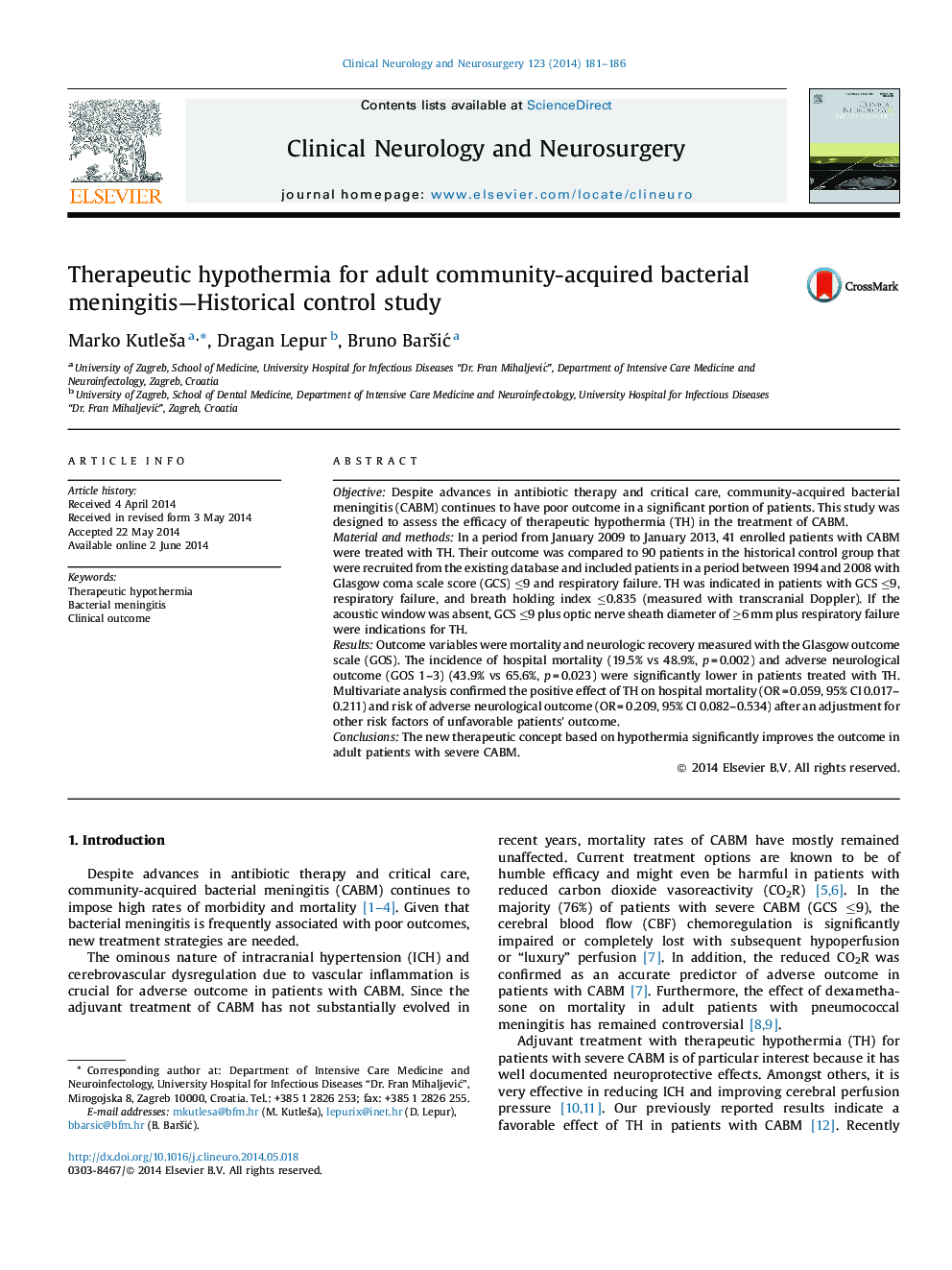| Article ID | Journal | Published Year | Pages | File Type |
|---|---|---|---|---|
| 3040183 | Clinical Neurology and Neurosurgery | 2014 | 6 Pages |
•Our trial determined favorable effect of therapeutic hypothermia on the outcome of patients with severe community acquired bacterial meningitis.•Previously published randomized control trial found that therapeutic hypothermia did not improve the outcome of the patients with community acquired bacterial meningitis.•Since the two studies on the efficacy of therapeutic hypothermia in patients with community acquired bacterial meningitis disclosed opposite results, further evidence is mandatory before this potentially effective form of treatment can be discarded.•Further trials investigating therapeutic hypothermia in community acquired bacterial meningitis should assess intracranial pressure and vasore activity if conclusions tend to be accurate.
ObjectiveDespite advances in antibiotic therapy and critical care, community-acquired bacterial meningitis (CABM) continues to have poor outcome in a significant portion of patients. This study was designed to assess the efficacy of therapeutic hypothermia (TH) in the treatment of CABM.Material and methodsIn a period from January 2009 to January 2013, 41 enrolled patients with CABM were treated with TH. Their outcome was compared to 90 patients in the historical control group that were recruited from the existing database and included patients in a period between 1994 and 2008 with Glasgow coma scale score (GCS) ≤9 and respiratory failure. TH was indicated in patients with GCS ≤9, respiratory failure, and breath holding index ≤0.835 (measured with transcranial Doppler). If the acoustic window was absent, GCS ≤9 plus optic nerve sheath diameter of ≥6 mm plus respiratory failure were indications for TH.ResultsOutcome variables were mortality and neurologic recovery measured with the Glasgow outcome scale (GOS). The incidence of hospital mortality (19.5% vs 48.9%, p = 0.002) and adverse neurological outcome (GOS 1–3) (43.9% vs 65.6%, p = 0.023) were significantly lower in patients treated with TH. Multivariate analysis confirmed the positive effect of TH on hospital mortality (OR = 0.059, 95% CI 0.017–0.211) and risk of adverse neurological outcome (OR = 0.209, 95% CI 0.082–0.534) after an adjustment for other risk factors of unfavorable patients' outcome.ConclusionsThe new therapeutic concept based on hypothermia significantly improves the outcome in adult patients with severe CABM.
